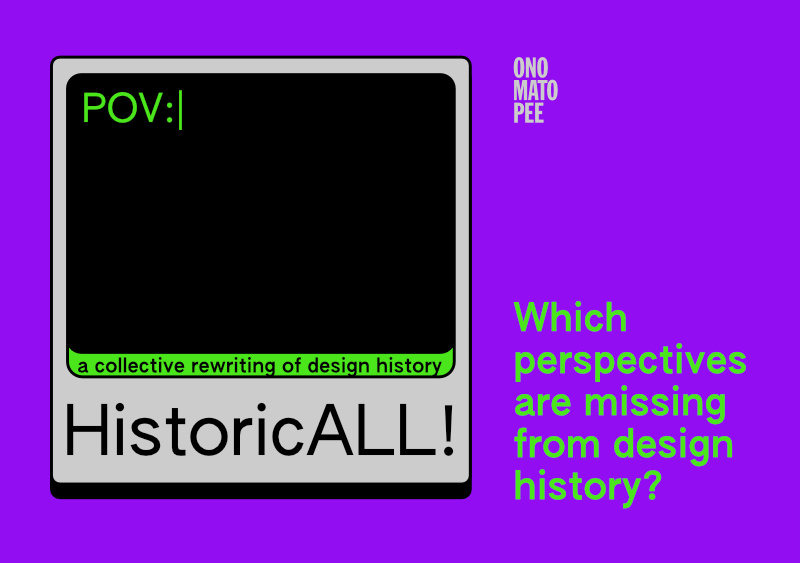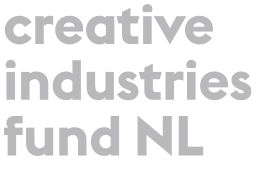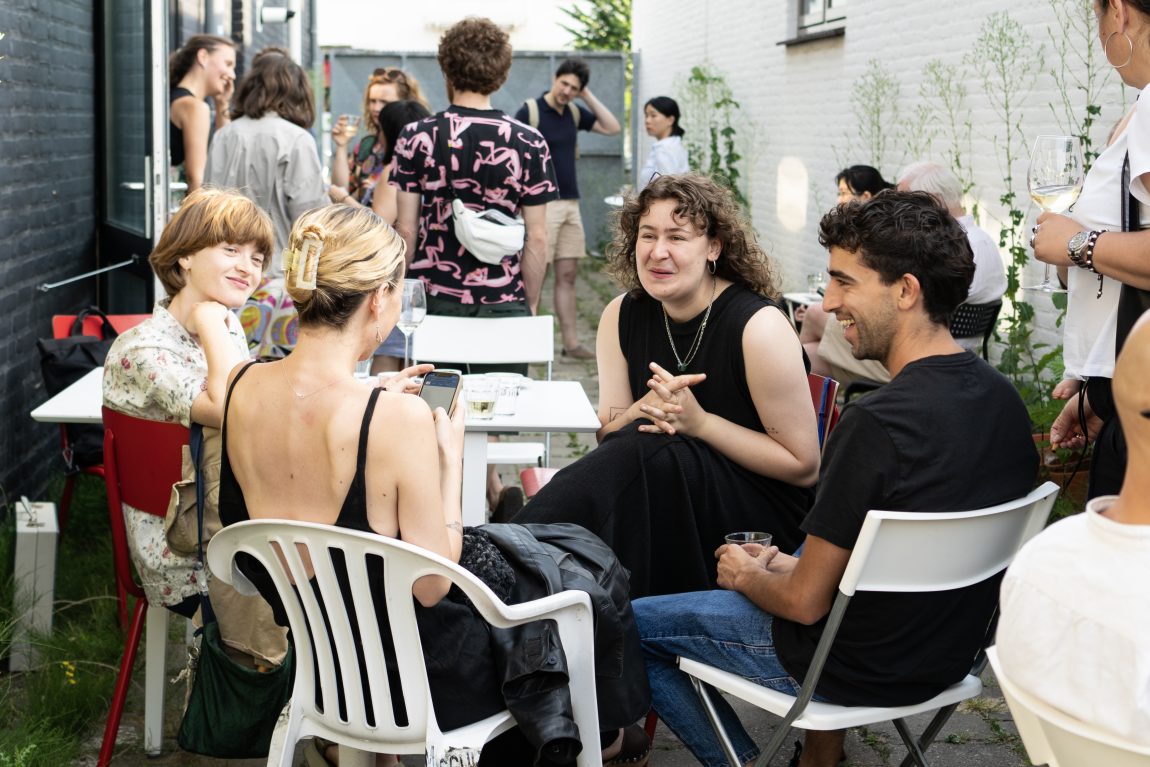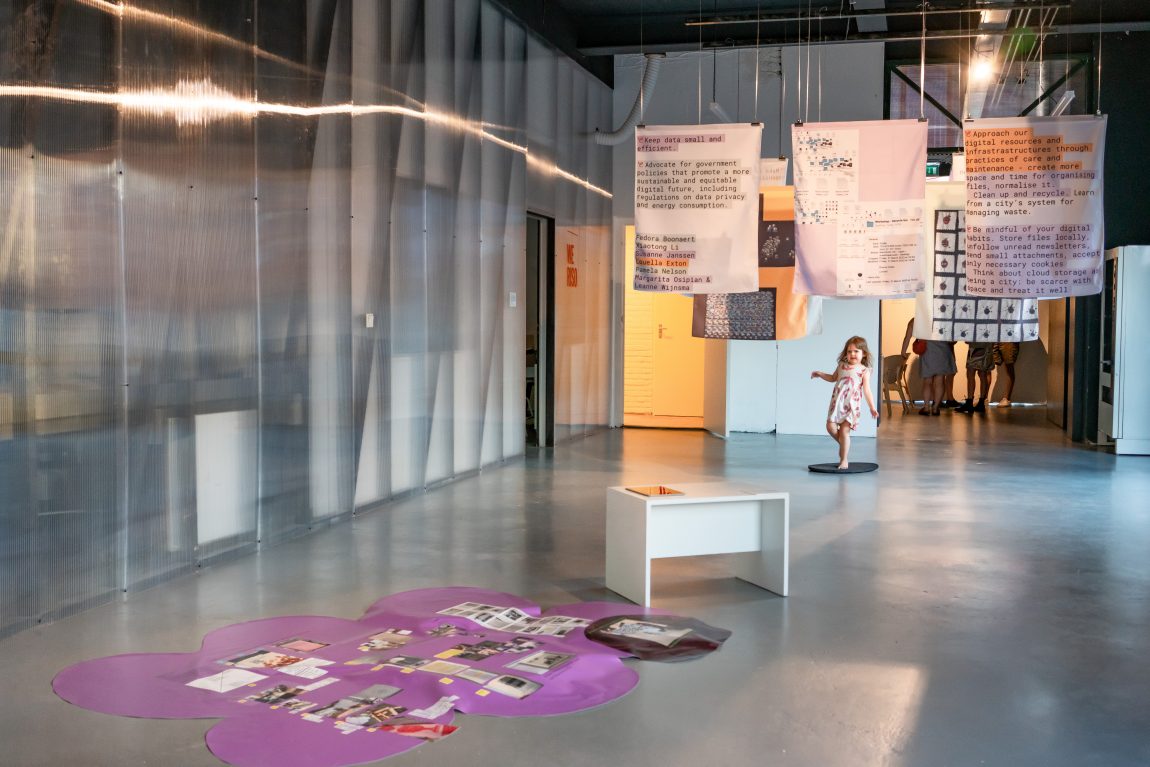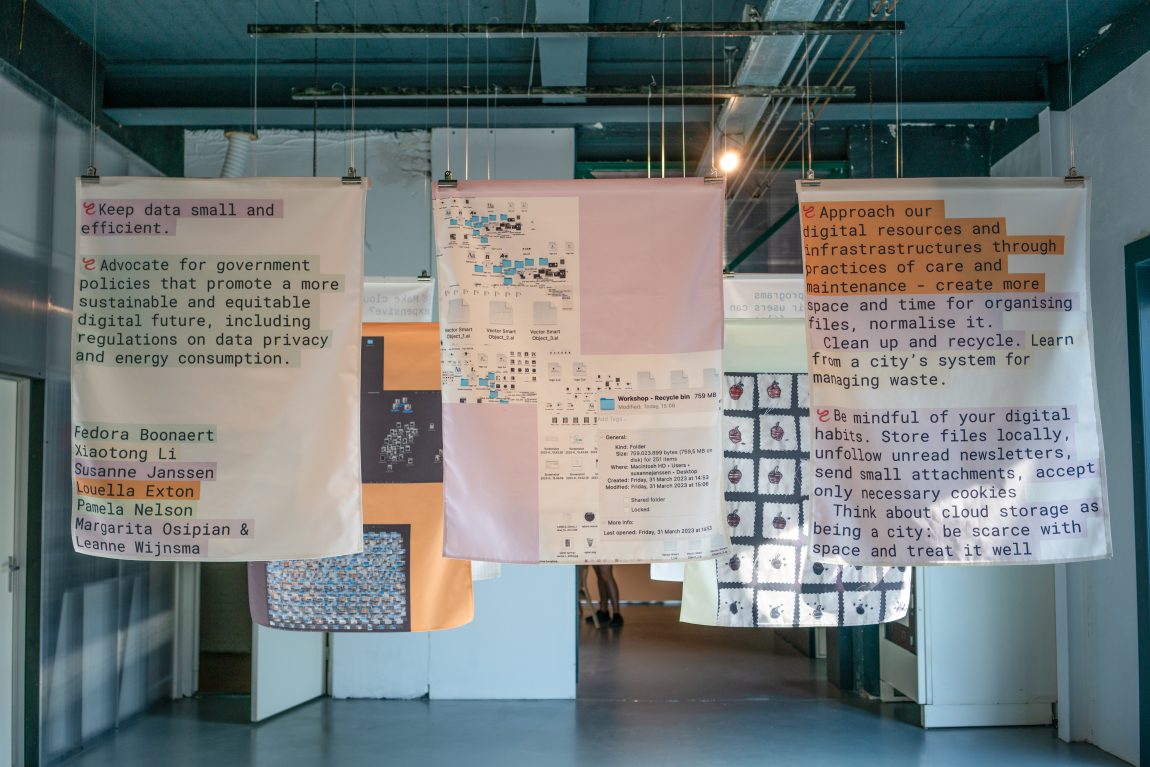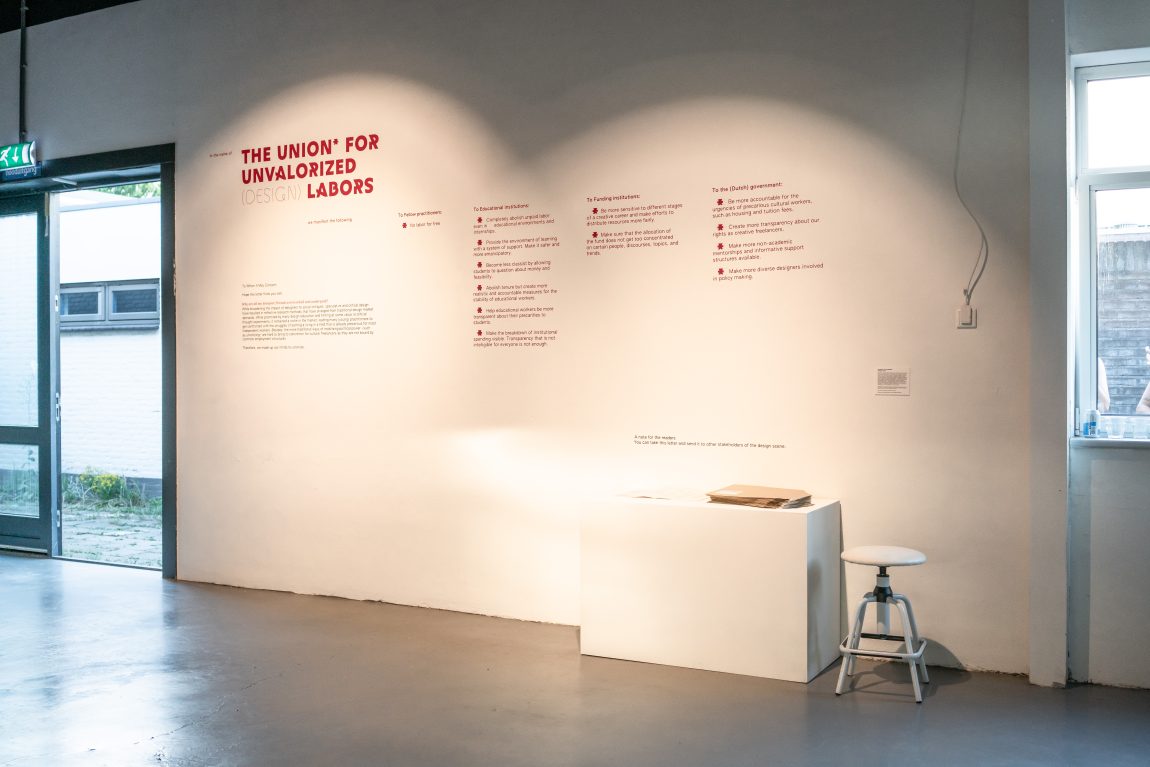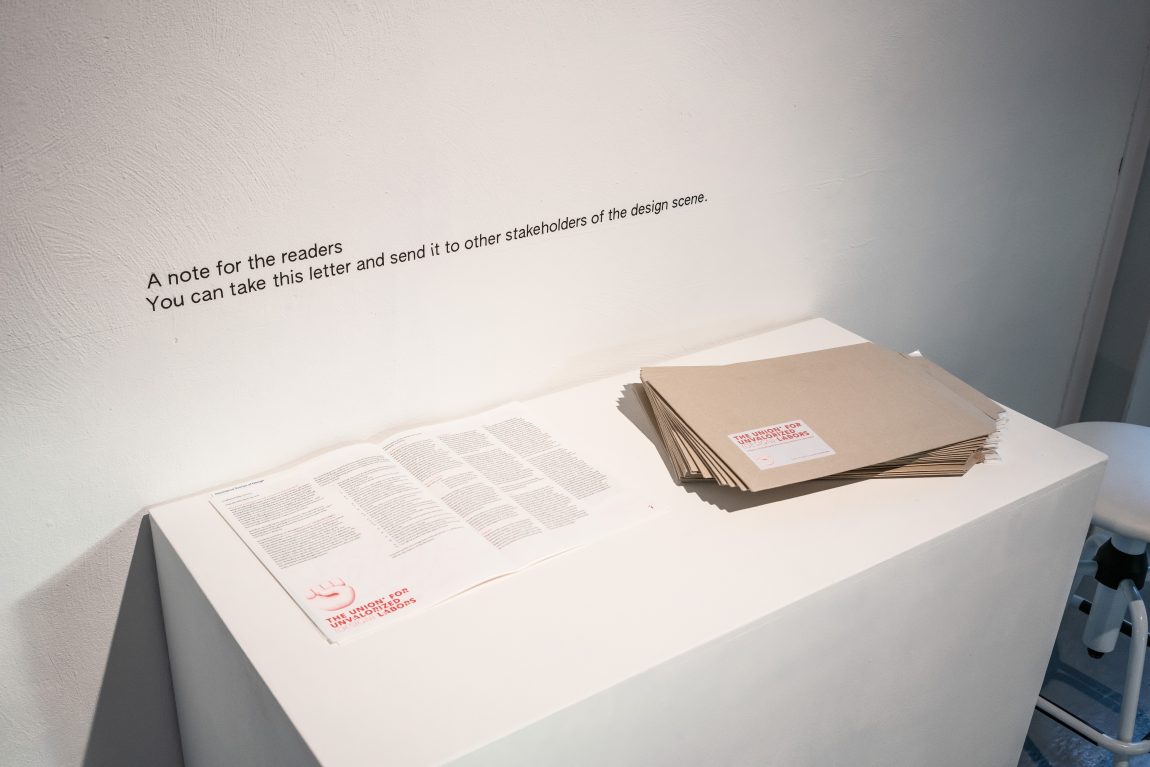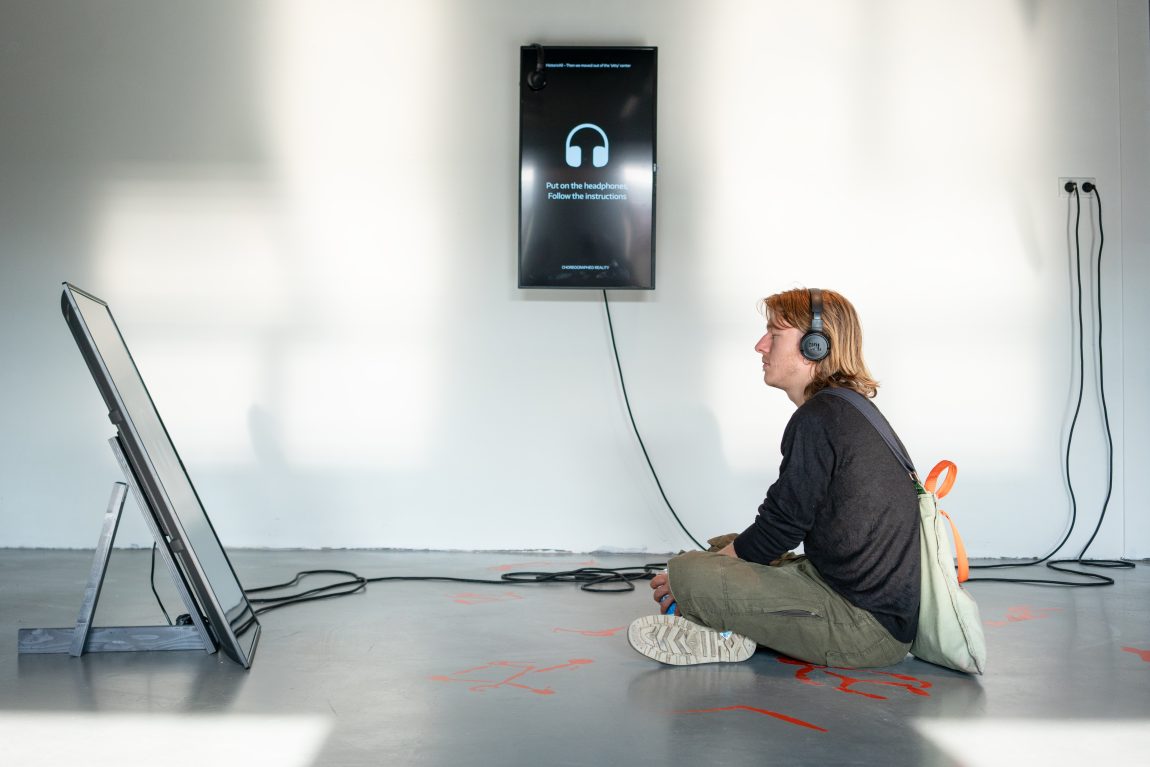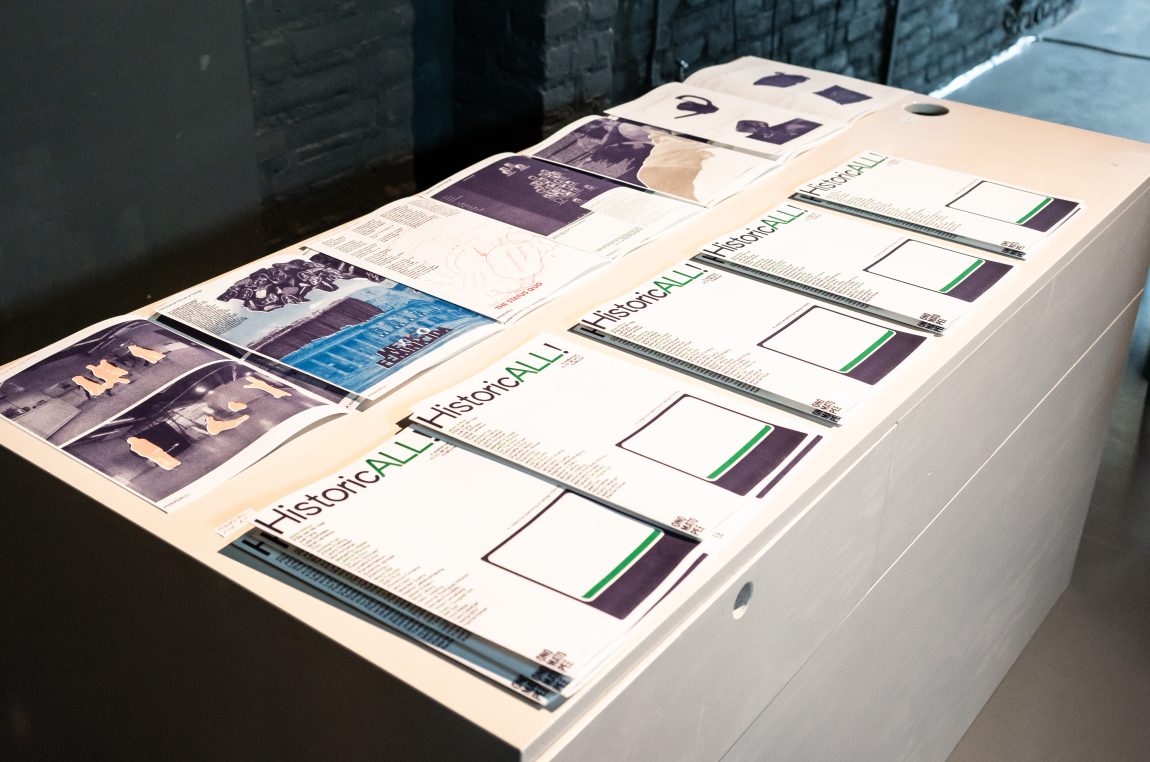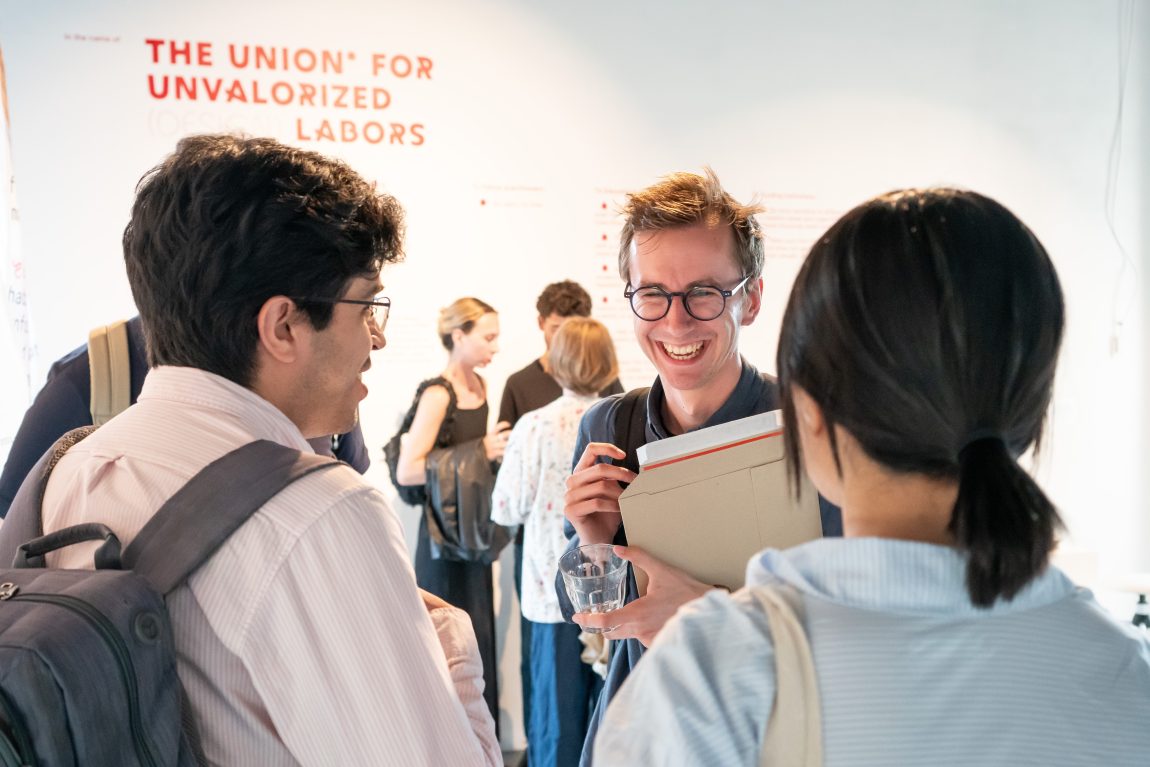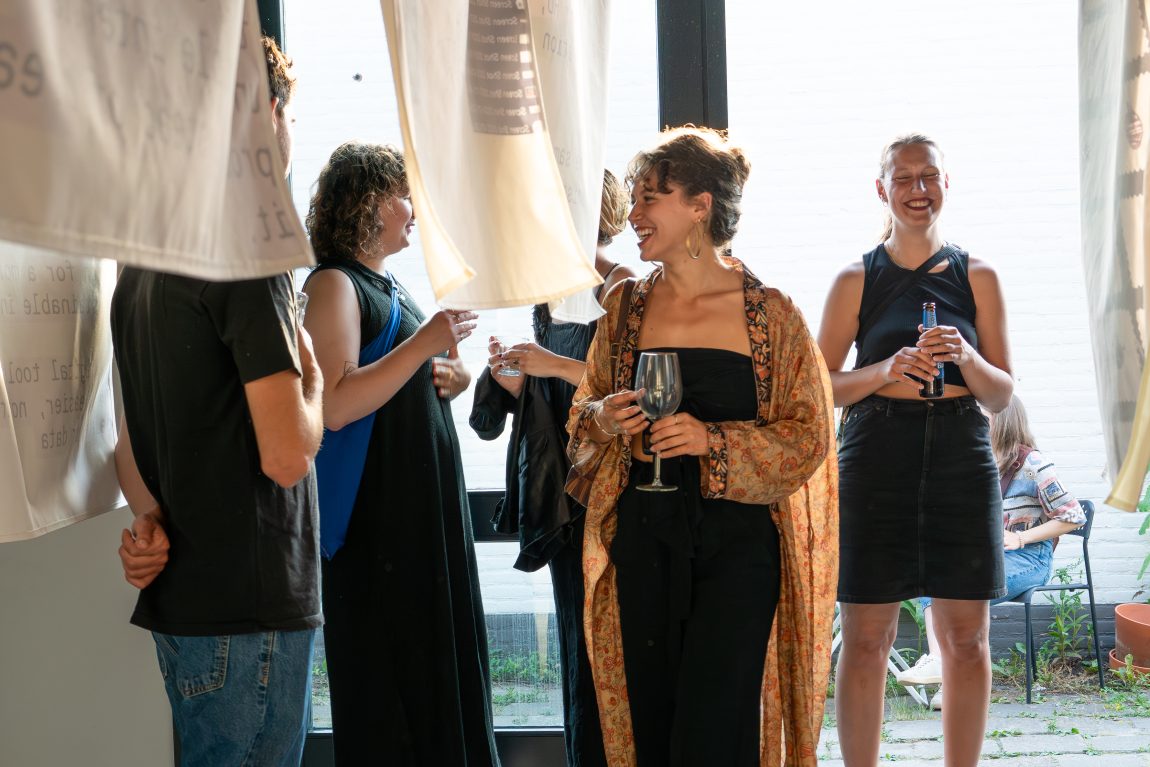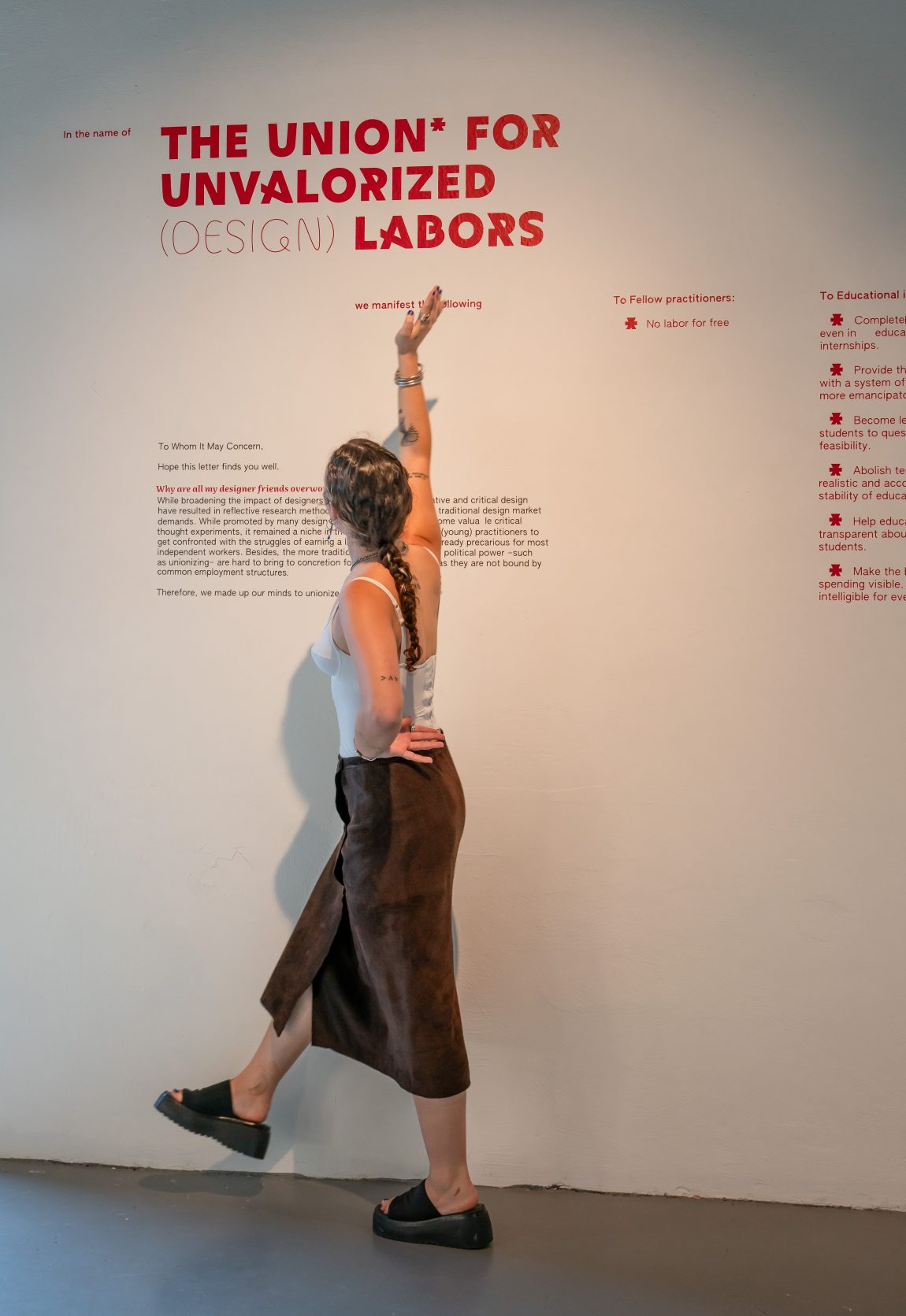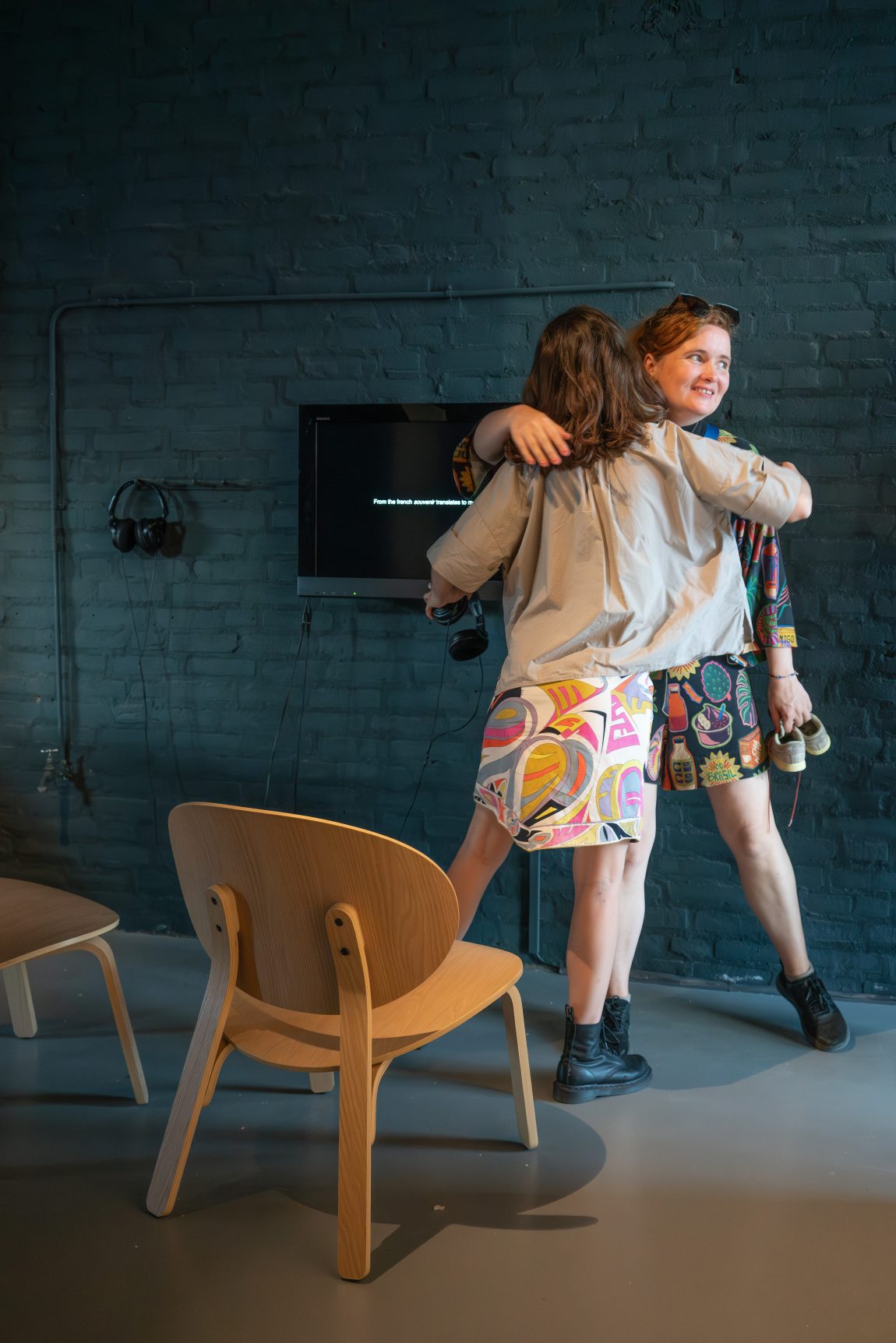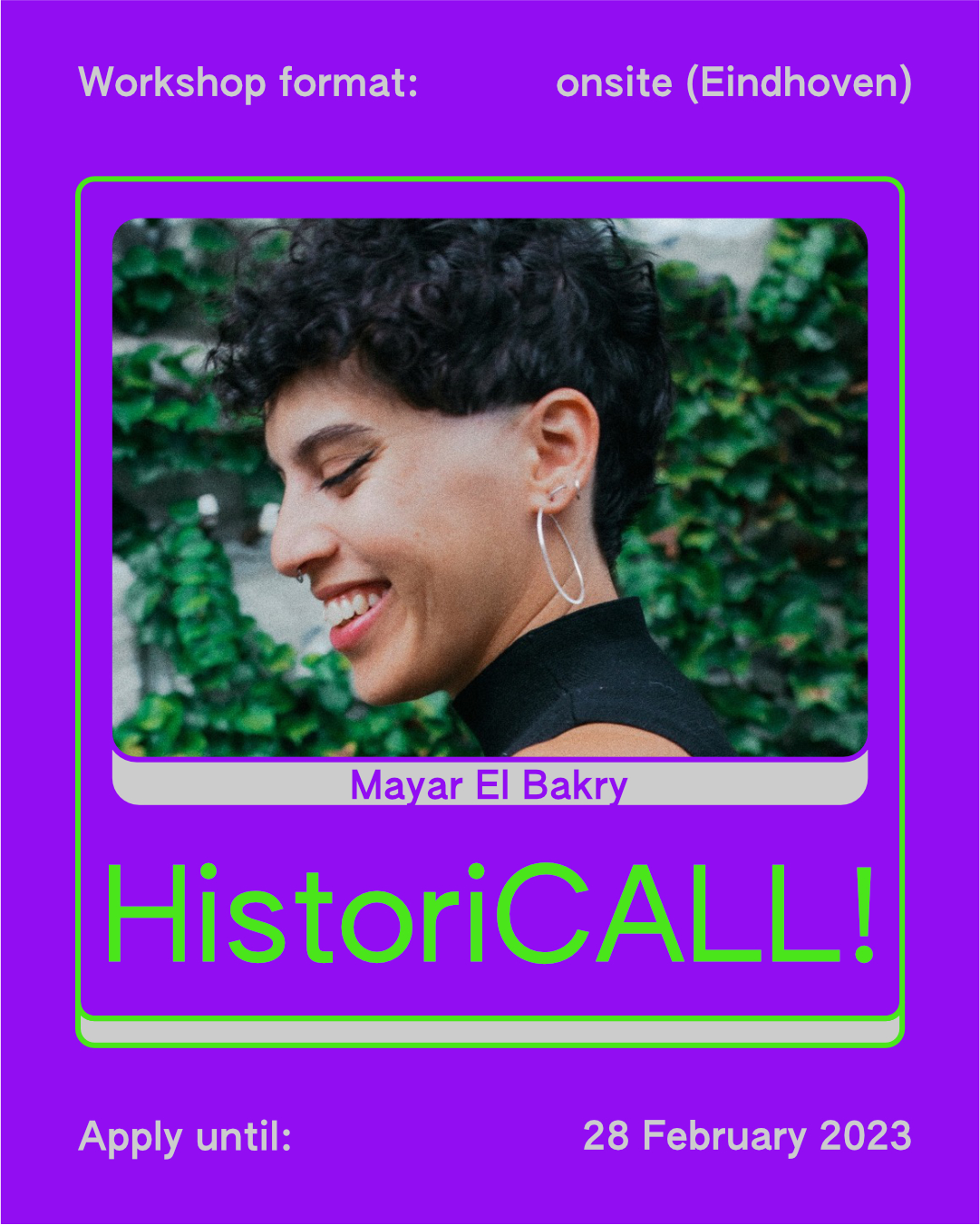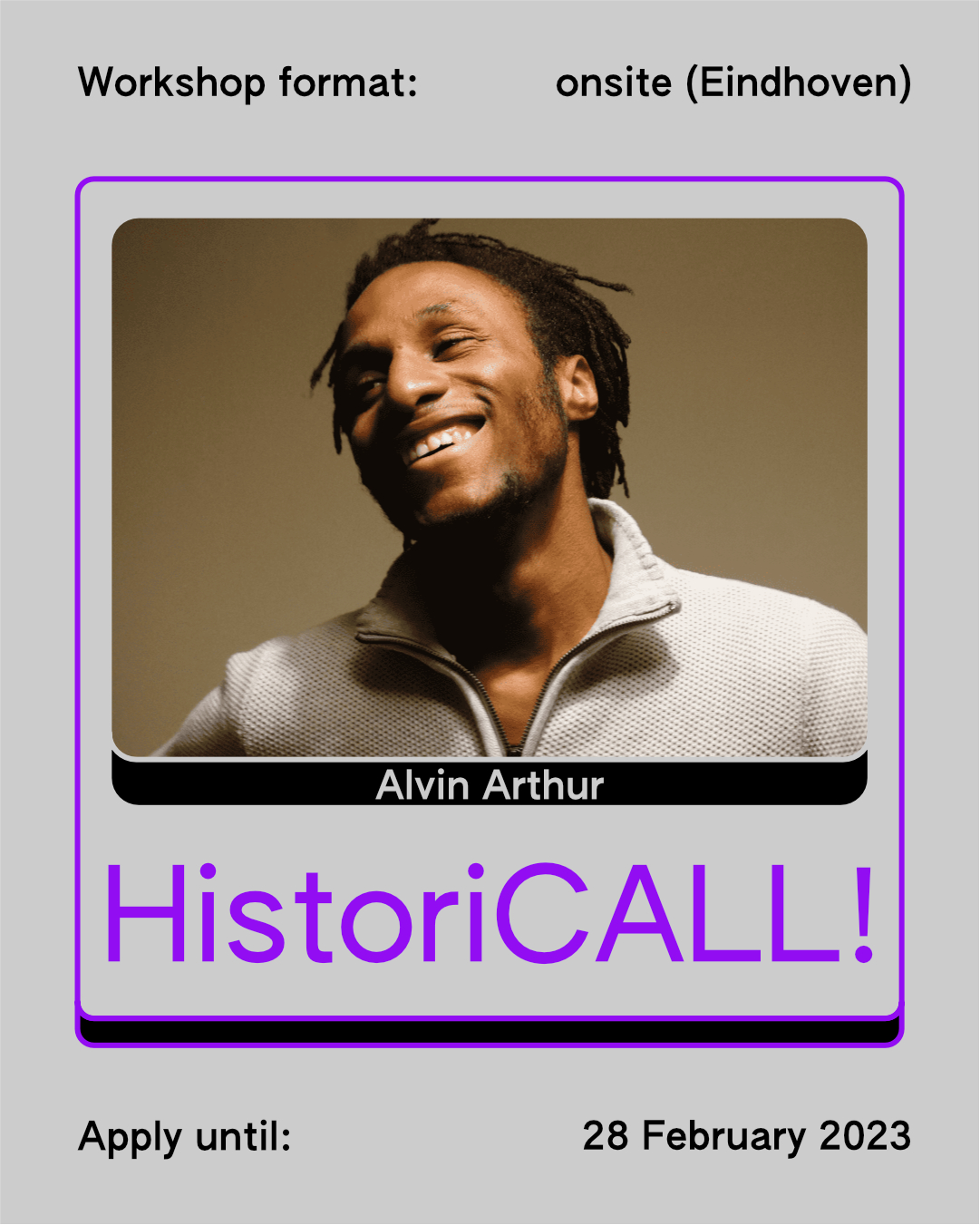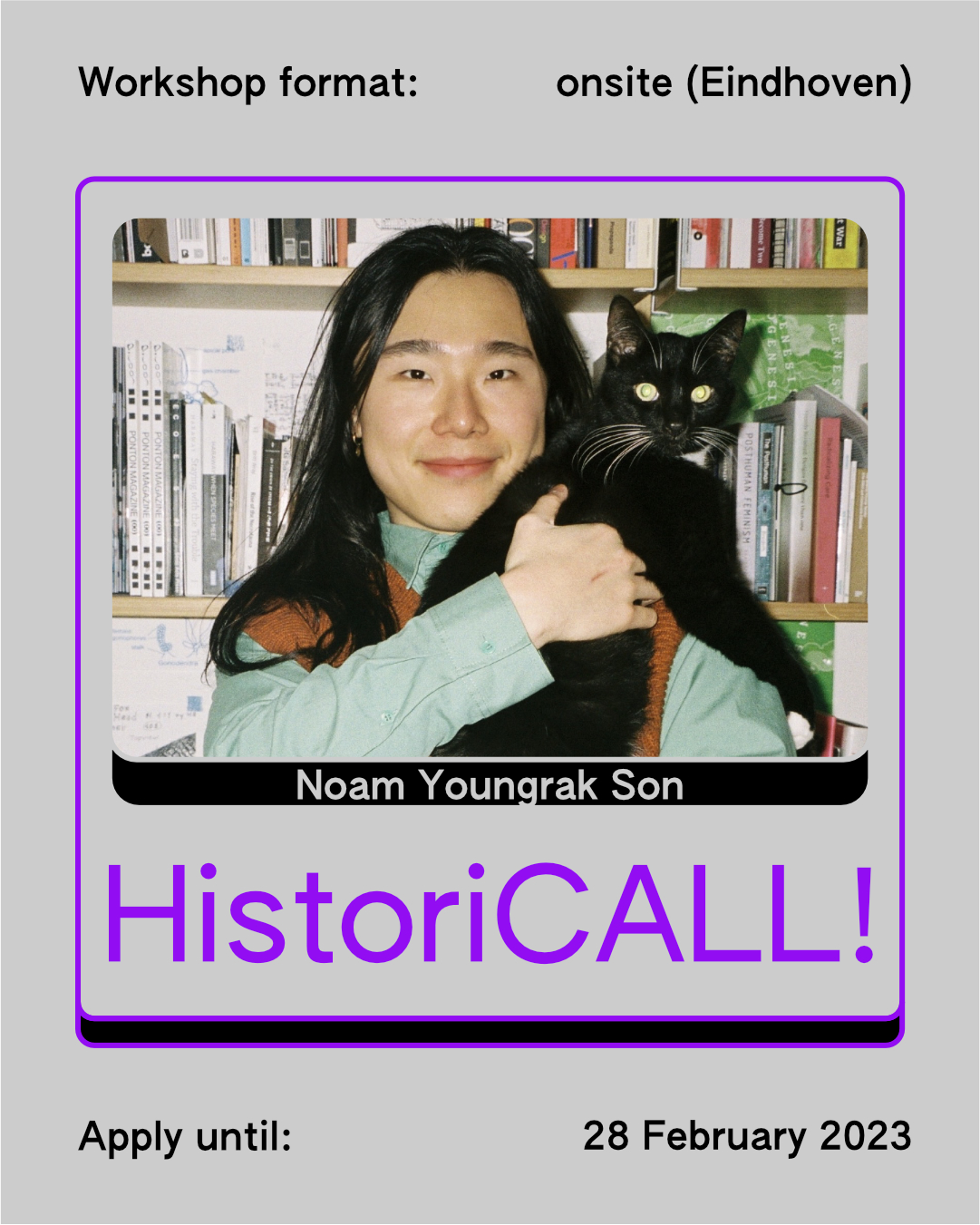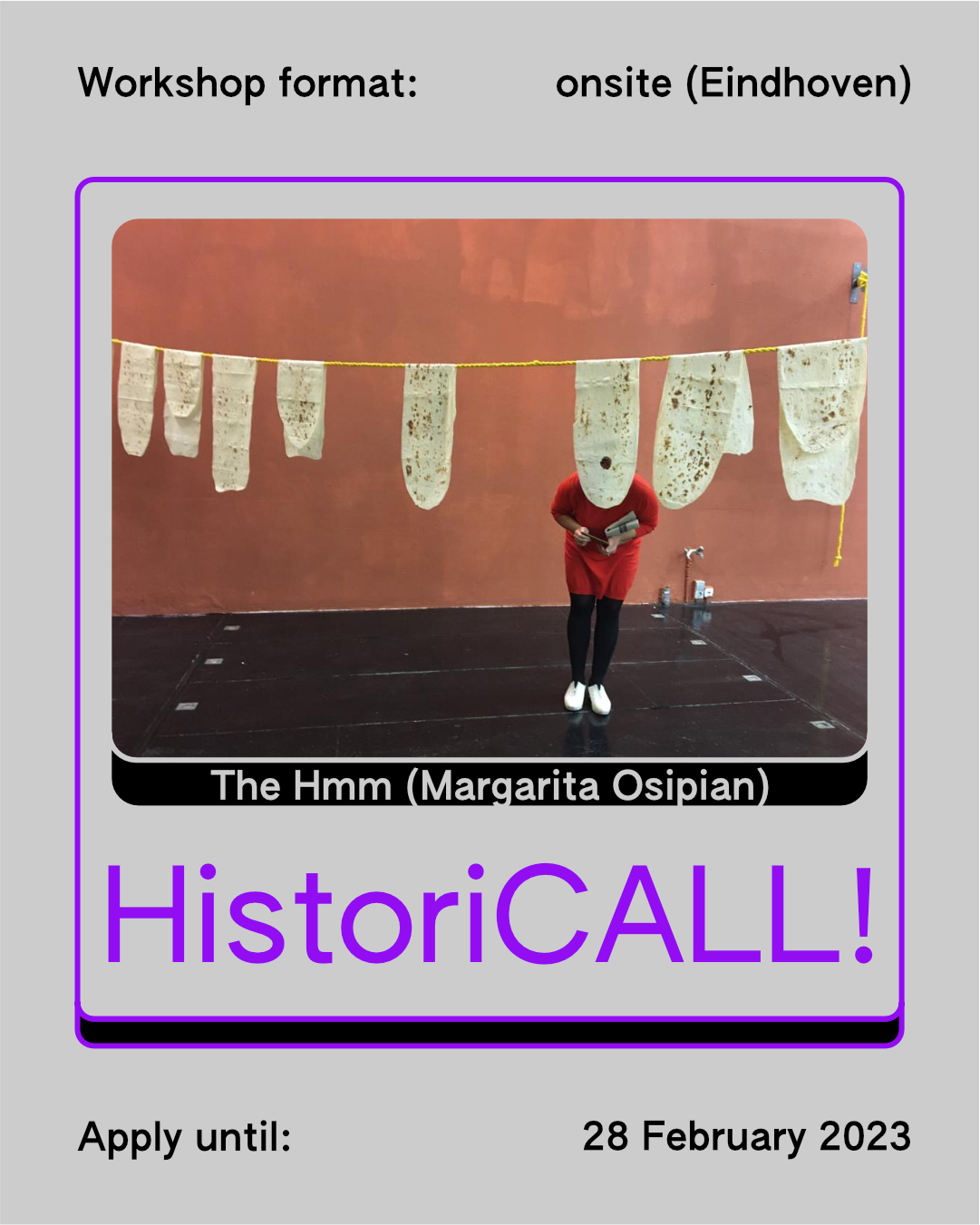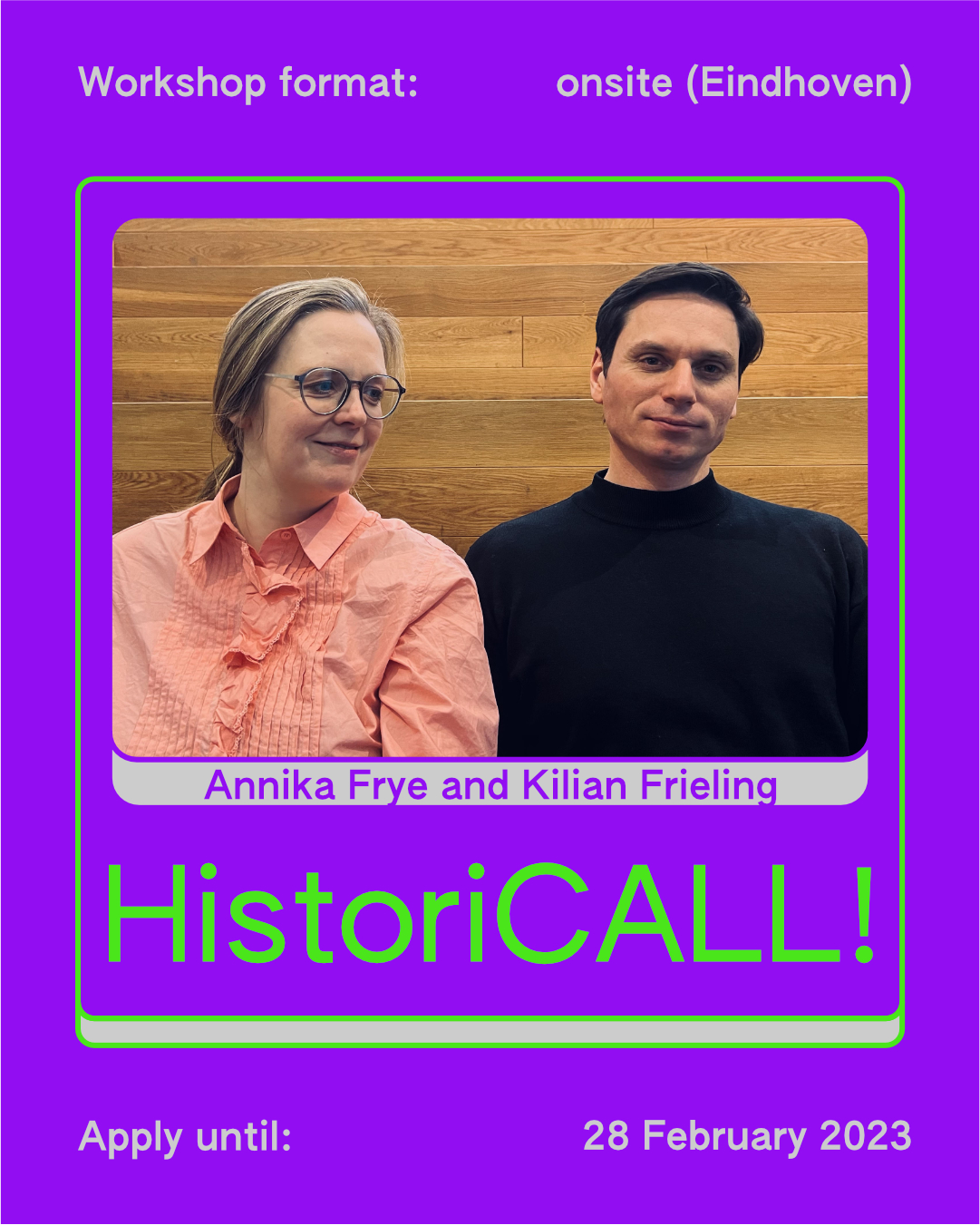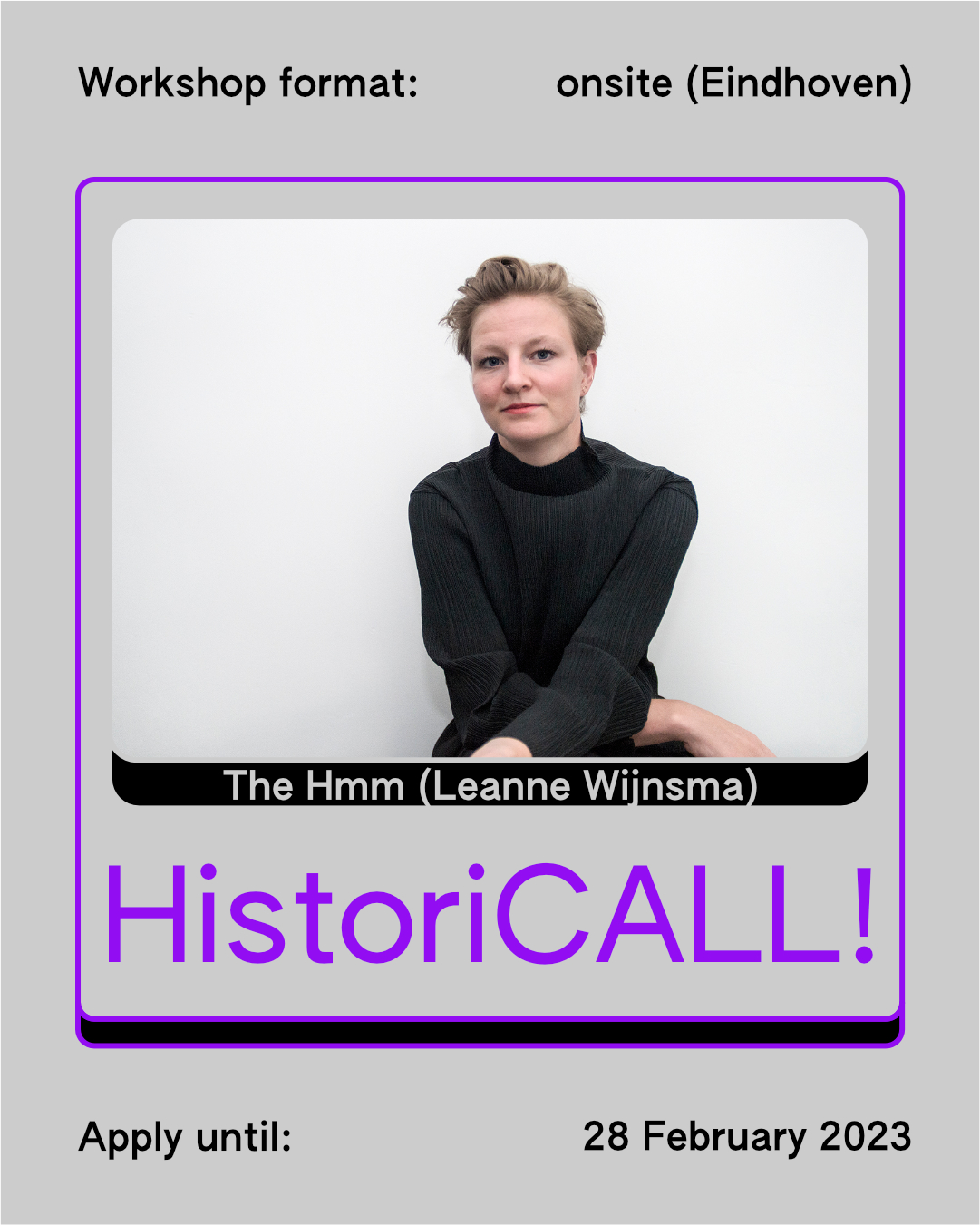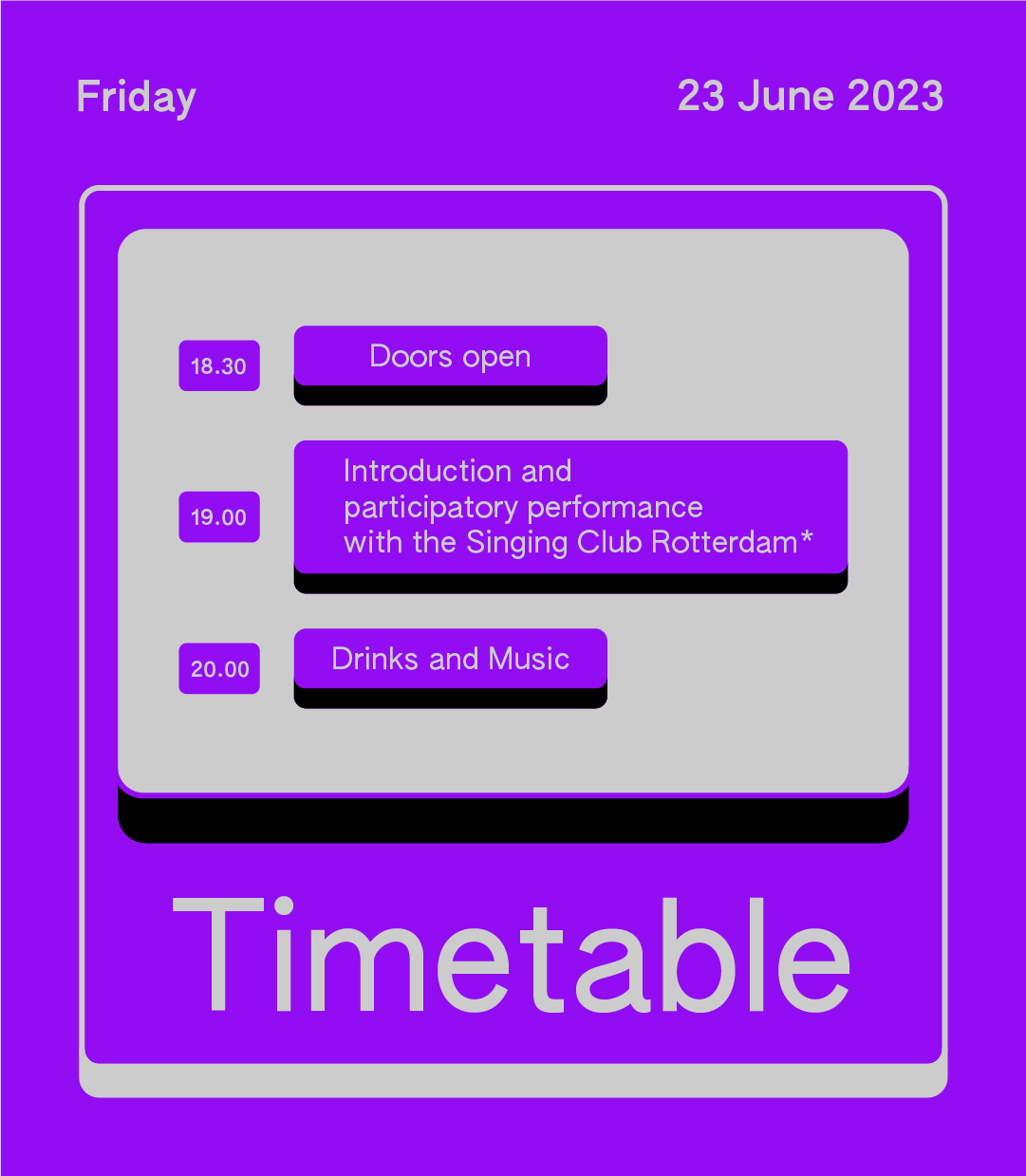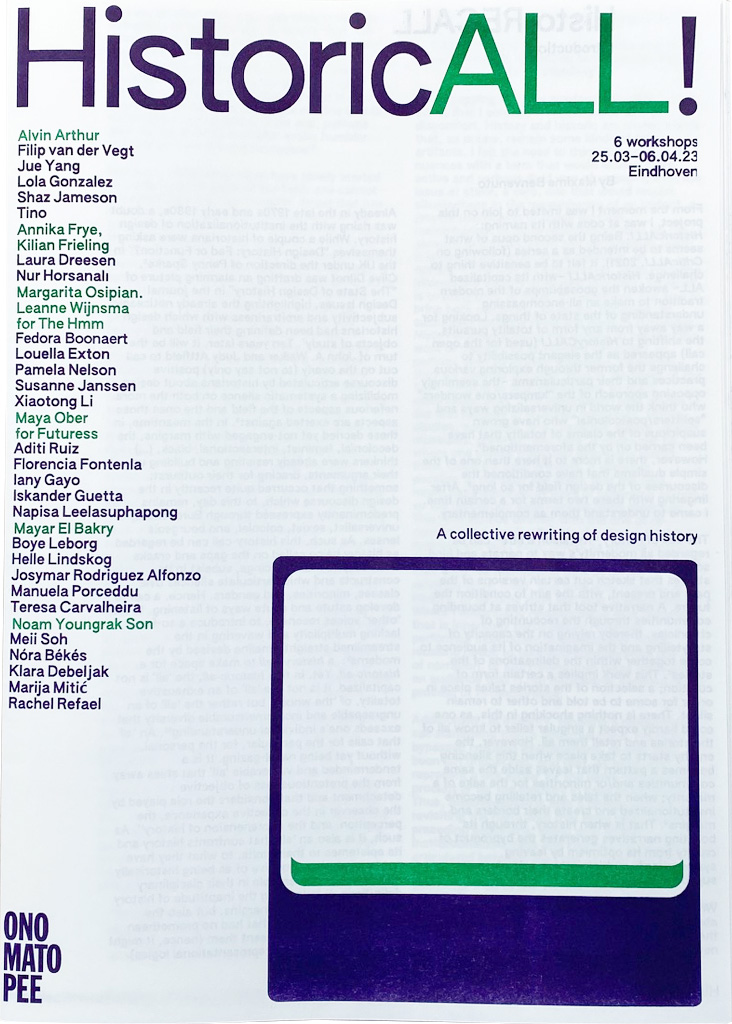HistoricAll! presents collective and individual works by 27 participants made during a series of workshops by curators, design practitioners, and researchers who facilitated alternative ways of speaking and thinking about design history.
Claiming that design history should be open to ALL implies a more inclusive, less institutional structure in the modalities in which design history is discussed and eventually made public. It suggests the need to include a plurality of voices in the discourse.
Through ongoing discussions and conversations attempts are made to find answers to the following questions: How do we tell the history of design? And who is it told by? Which stories have been neglected and how can they be uncovered and, perhaps, re-performed? What are the tools we have learned and is it possible to unlearn them? What can we learn from each other? Where do we go from here?
The project also resulted in the riso-printed homonym zine HistoricALL! A collective rewriting of design history with an inspiring introduction by Maxime Benvenuto as well as contributions by curator Cecilia Casabona, all participants involved in the project and the workshop leaders, Alvin Arthur, Mayar El Barky, Annika Frye, Kilian Frieling, Noam Youngrak Son, Maya Ober, Margarita Osipian, and Leanne Wijnsma. Graphic design by Martina Eddone.
The workshops
Onomatopee invites 6 different designers / collectives / curators to shape 6 workshops around the idea of re-writing design history.
These workshops aim to stimulate the participants to contribute to the rewriting of design history. This contribution may be written, performed or visualized in any way: we do not want to hamper the participants with the same obstacles that make design history and design historiography so inaccessible and exclusive. The diverse contributions could result in a visual research, an object, a piece of poetry, a fictional story, an investigative essay, a manifesto, a poster, a performance, an installation, a video: forms of expression are entirely free!
Cooking up mischief by Mayar El Barky (26th of March at Onomatopee - Eindhoven)
Kitchens can be sites of exploitation or care, depending on the politics within them. Similarly, design follows the same logic. Resisting the rigid systems of oppression, like capitalism, colonialism, patriarchy, and ableism, which design continues to uphold, it starts with understanding how these systems define all the aspects of our daily life. Against this backdrop and with the call to action initiated by HistoricALL, I invite you to join me in the kitchen and start cooking up some (designerly) mischief.
Together in our communal kitchen we develop/design recipes which aid in questioning norms and standards within design history while starting to uncover practices, narratives, stories, aesthetics, and modes of knowledge production that are missing from our purview.
What is my social, cultural and political position? Where am I coming from when I critically reflect design?
What are norms I haven’t noticed before that influence my practice?
Which steps can I take to start unlearning them?
Then we moved out of the sitty center by Alvin Arthur (5th of April at Onomatopee - Eindhoven)
Do you believe in a society that is designed by people who sit all day long while creating it? Throughout history, gestures made and performed by humans have been core to our ability to both be with/in the world and navigate it: from sheltering to mating, to cooking and communicating. Long before verbal language, our bodies were the prime constituent of our lives. Besides nature shaping our primal bodily expressions and behaviors, technological happenings began to design us back as we designed them. These technologies slowly standardized our embodied responses to our 'civilized' daily environments, transforming our lives into lifestyles. One of the effects of this 'modernization' brought a massive amount of people into so-called "sitty centers": a sedentary reduction of movements in a sit society. Nowadays, as we settle in chairs, we scroll, tap, swipe, type, and click for most of the movements we produce. How conscious are we of these daily responses? How might we recontextualize and re-body the gestures that end up defining us?
The Union* for Unvalorized (design) Labors by Noam Youngrak Son (25th of March at Onomatopee - Eindhoven)
Why are all my designer friends overworked and underpaid?
While broadening the impact of designers to social critiques, speculative and critical design have resulted in reflective research methods that have diverged from traditional design market demands. While promoted by many design education and hinting at some valuable critical thought experiments, it has remained a niche in the market, leading many (young) practitioners to be confronted by the struggles of earning a living in a field that is already precarious for most independent workers. Besides, as cultural freelancers, more traditional ways of mobilizing political power, namely forming a labor union, are not legally available since their labor is not defined within employment.
The workshop will be built around a fictional organization addressing the precarious nature of un-valorized design labor. Using speculative design methodologies, we will attempt to tackle some inherent and inherited issues peculiar to the fields’ conditions. The aim is to look at how these shared struggles can meaningfully extend into solidarity by practicing maintenance and care with other precarious workers (not only confined to the design field).
Towards a Lighter Internet by The Hmmm with Margarita Osipian and Leanne Wijnsma (31st of March at Onomatopee - Eindhoven)
With new media and digital technologies, there is the underlying assumption that newer is always better. We are primed to always want more—the newest iPhone, the highest resolution videos, more data, more storage, more RAM. Despite the ephemeral metaphors of ‘the cloud’ and the aura of immateriality surrounding digital technologies, the digital ecologies that we are part of on a daily basis have a big environmental impact—and it’s only growing. Our habits, and the design of digital tools and platforms, pushes us to continue to consume and store digital content endlessly. But how do we start to 'feel' the material weight of this digital accumulation? In this hands-on design workshop we'll start to untangle the digital ecosystems that shape our individual data collection habits and learn how to take a more mindful approach to our digitally stored files. We will try to reveal the intersections and connections between design history and the ecological impact of data consumption and data storage. When did we start to design for a more sustainable internet?
Who is designing design? Mapping design history in the workshop by Annika Frye & Kilian Frieling (1st of April at Onomatopee - Eindhoven)
The network of people contributing to a design is more complex than we may think. This is often ignored by design history. When looking at design classics like the Eiermann table, that was designed in the workshop led by Adam Wieland at Stuttgart Academy of the Arts, design authorship becomes precarious (see: Daniel Klapsing: Forschung dutch Redesign, 2017). To further explore the role of non designers in the design process, we want to map the stories of authorship based on your own stories and based on historical examples. In particular, we want to explore design schools with their workshops. We are going to use methods of collaborative working with mapping tools such as Mural or the https://hyperchannel.net tool that is based on Are.na by Benjamin Unterluggauer and Joscha Brüning. And we will use the method of storytelling as it is framed by Donna Haraway. Our findings will be transferred into a digital publication format.
Resistance Stories of Design by Futuress with Maya Ober (kick off day: 25th of March, fully online)
Hegemonic design history is the story of “genius” individuals — predominantly white men — who reached the upper echelons of the field, fueling the capitalist economy, extractivist modes of production, and fostering consumerism. Accordingly, industrial design is painted as a universal, neutral, and apolitical practice that “solves” problems. However, this dominant narrative lacks scrutiny of the power structures underpinning design and its political and social contexts. On top of that, it also ignores many resistance stories from Cuba to the German Democratic Republic, Argentina to Tunisia, Palestine to India, and beyond, who were countering patriarchal-colonial discourses and tried to imagine industrial design otherwise — a social and politically conscious practice.
In this online research-based workshop, we invite the participants to unveil the past and contemporary stories of resistance from their communities, spanning educational projects, popular initiatives, object stories, local materials, and more.


